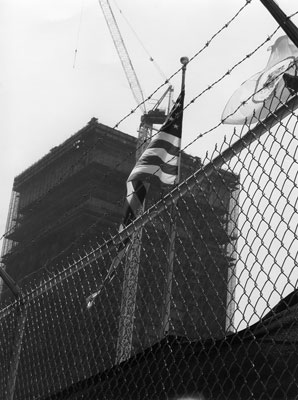All Nonfiction
- Bullying
- Books
- Academic
- Author Interviews
- Celebrity interviews
- College Articles
- College Essays
- Educator of the Year
- Heroes
- Interviews
- Memoir
- Personal Experience
- Sports
- Travel & Culture
All Opinions
- Bullying
- Current Events / Politics
- Discrimination
- Drugs / Alcohol / Smoking
- Entertainment / Celebrities
- Environment
- Love / Relationships
- Movies / Music / TV
- Pop Culture / Trends
- School / College
- Social Issues / Civics
- Spirituality / Religion
- Sports / Hobbies
All Hot Topics
- Bullying
- Community Service
- Environment
- Health
- Letters to the Editor
- Pride & Prejudice
- What Matters
- Back
Summer Guide
- Program Links
- Program Reviews
- Back
College Guide
- College Links
- College Reviews
- College Essays
- College Articles
- Back
Political Action v. Inaction: A Paradox
In 1970, the US approved a UN declaration, which asserts that "No State or group of States has the right to intervene, directly or indirectly, for any reason whatever, in the internal or external affairs of any other State." For example, it would be illegal for the US to interfere in the civil war raging in Sahel region of Africa. However, as Mark P. Lagon of the Council on Foreign Relations writes in February 2011, "Sometimes military action may be necessary not just to facilitate or restore democracy, but to end a particularly inhumane form of autocracy. Military intervention in Rwanda in 1994 to prevent or stop genocide would have been just such a case." Does this make US intervention justified in a crisis? Lagon later notes that there have been "a number of political and economic setbacks. These include the turmoil in post-invasion Iraq, [and] election results favoring extremists…." This explicates the ramifications that meddling can have.
The question of action vs. inaction is paradoxical. Although interference in foreign affairs is unlawful, it can be imperative, despite its implications. So, should the US intervene in the plights of foreign nations? What is the US obliged to do when faced with predicaments such as conflicts in Africa and the Russian invasion of Ukraine? As a superpower, the US is to exemplify compliance with international law. However, the US is morally obligated to act on her fundamentals, which include humanitarianism and the spread of democracy.

Similar Articles
JOIN THE DISCUSSION
This article has 0 comments.
